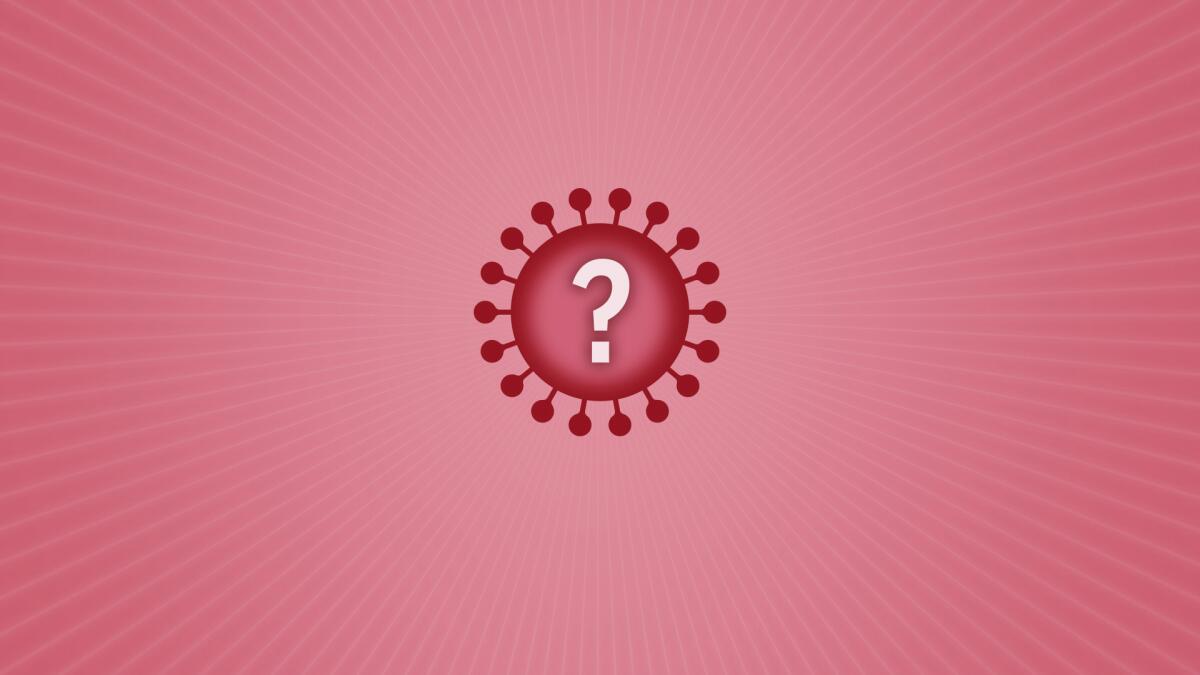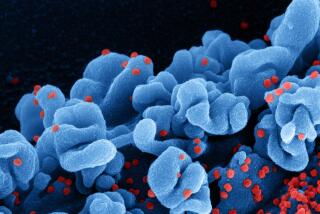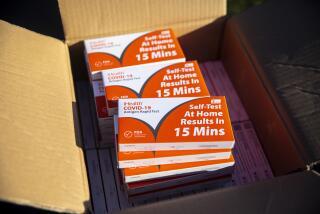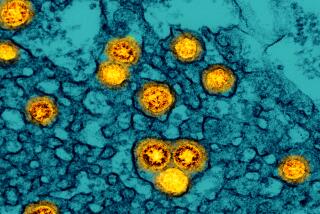Can at-home coronavirus tests detect the Omicron variant?

- Share via
Can at-home coronavirus tests detect the Omicron variant?
Yes, but U.S. health officials say that early data suggest they may be less successful at picking it up than with other variants.
Government recommendations for using at-home tests haven’t changed. People should continue to use them when a quick result is important.
“The bottom line is the tests still detect COVID-19 whether it is Delta or Alpha or Omicron,” said Dr. Emily Volk, president of the College of American Pathologists.
Government scientists have been checking to make sure the rapid tests still work as each new variant comes along. This week, the Food and Drug Administration said preliminary research indicates that they detect Omicron but might have reduced sensitivity. The agency noted that it’s still studying how the tests perform with the variant, which was first detected in late November.
President Biden plans to beef up at-home testing and more.
Dr. Anthony Fauci, the top U.S. infectious-disease expert, said the FDA wanted to be “totally transparent” by noting that the sensitivity might be a bit less, but the tests remain important.
There are many good uses for at-home tests, Volk said. Combined with vaccination, they can make you more comfortable about gathering with family and friends.
If you’ve been exposed to a person who tested positive but you don’t have symptoms, a rapid test five days later can give a good indication of whether you caught the coronavirus. It can also help if you’re not sure whether your runny nose or sore throat is COVID-related.
But consider the context when looking at results. If you feel sick after going out to a nightclub in an area with high infection rates, for example, you should look at a negative result from an at-home test with a little more skepticism, Volk said.
Following up with a PCR test is a good idea, she said. Those tests are more accurate and are done at testing sites and hospitals.
More to Read
Sign up for Essential California
The most important California stories and recommendations in your inbox every morning.
You may occasionally receive promotional content from the Los Angeles Times.











